
Alcamo is the fourth-largest town and commune of the Province of Trapani, Sicily, with a population of 44.925 inhabitants. It is on the borderline with the Metropolitan City of Palermo at a distance of about 50 kilometres from Palermo and Trapani.

San Francesco d'Assisi is a 16th-century-style church dedicated to Saint Francis of Assisi, located in Alcamo, province of Trapani, Sicily, southern Italy.

Palazzo Palmerini is a 16th century civic building located in Alcamo, in the province of Trapani: the Palace is situated at Via Buonarroti.
Ignazio De Blasi was an Italian historian. He was the first scholar who wrote a history of his town providing documentary evidence on it.
Francesco Maria Mirabella was an Italian historian, educator, and poet.
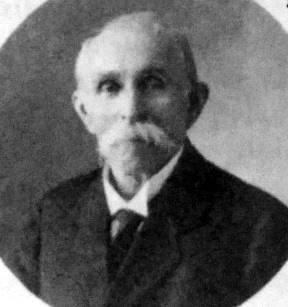
Pietro Maria Rocca was an Italian historian.

Spirito Santo is a Catholic church located in Alcamo, in the province of Trapani, Sicily.

Palazzo De Ballis is a 15th-century historical building of Spanish Gothic architecture; the Tower De Ballis is a part of it. It is located in the town centre of Alcamo, in the province of Trapani.

The House of Ciullo d'Alcamo is a residential building located in the town centre of Alcamo, in the province of Trapani, Italy.

Palazzo Pastore is a civil building located in Alcamo, in the province of Trapani.

Palazzo Rocca is a civil building located in Alcamo, in the province of Trapani.

Villa Luisa is a mansion located in the town centre of Alcamo, in the province of Trapani.

The Compagnia dell'Immacolata Concezione is a religious confraternity founded in 1596 inside the Church of Saint Francis of Assisi in Alcamo, in the province of Trapani.

Palazzo Fraccia is a mansion in the town centre of Alcamo, in the province of Trapani.

Palazzo Rossotti-Chiarelli, dating back to the 18th century, is located in via Rossotti in Alcamo, in the province of Trapani. It is in via Rossotti: in the same street you can also visit the Chiesa del Santissimo Salvatore(o Badia Grande).
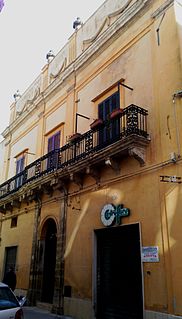
Palazzo Di Gregorio is a building located at via Dante in Alcamo, in the province of Trapani; it was built at about the 17th century.

Piazza Ciullo is the main square of Alcamo, in the province of Trapani, Sicily, Italy. Being located in the very town centre, it is a meeting place for people and an attraction for important events, especially for teenagers.
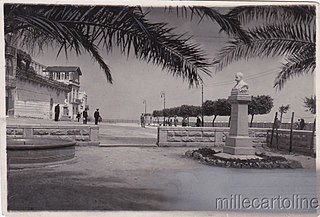
Piazza Bagolino is one of the main squares of Alcamo, in the province of Trapani. It is located near the town centre and it is one of the town attractions.
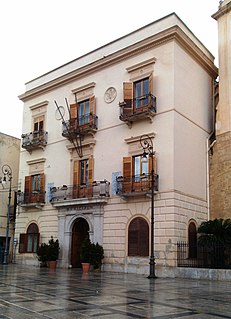
The Town hall of Alcamo, also called Il Municipio, is a public historical building located in Piazza Ciullo, in the town centre of Alcamo.
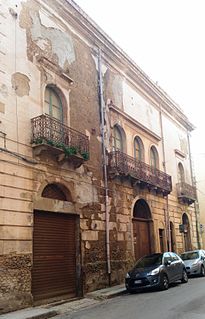
Palazzo De Stefani is an ancient residential building located in Alcamo, in the province of Trapani.



















